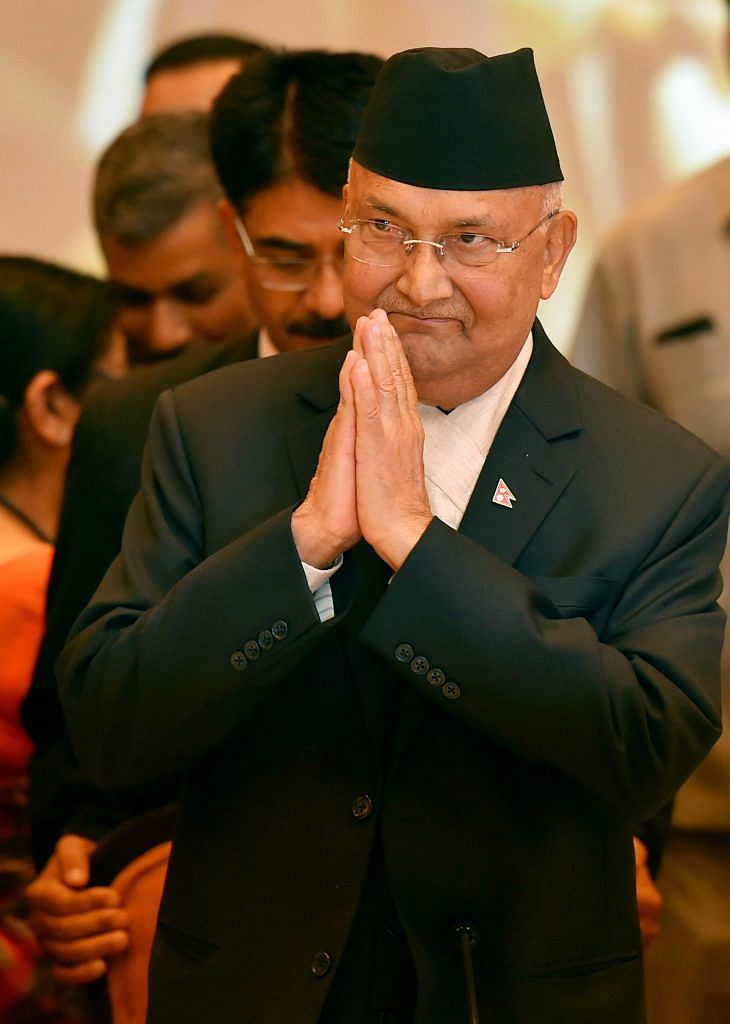New Delhi’s troubles with Nepal are suddenly centerstage, with Nepal’s Prime Minster K.P. Sharma Oli asserting claims to territory that India controls at the Nepal-India-China trijunction. Whatever be the reason for Nepal’s loud claims now, New Delhi should recognise more fundamental changes in the region that require it to handle such outbursts much more carefully. Unfortunately, India’s reaction was noticeably harsher compared to the first statement it made about the border confrontation with China.
It is quite possible that PM Oli is doing this out of domestic political or ideological compulsions, or even at the behest of China, as the Army chief General M.M Naravane has hinted. But for New Delhi, the expansion of China’s power into South Asia is a reality that changes the dynamic between India and its smaller neighbours, and this requires careful handling.
Also read: Not Nepal map, the real conflict is within KP Oli’s Communist Party
Understanding the neighbours
Just as India needs to frame its broad foreign policy acknowledging the consequences of its relative weakness vis-à-vis China and the US, it also needs to understand the repercussions of its own far greater power on its much weaker neighbours like Nepal. For them, India is a giant that can do them harm even without intending to. The result is that they tend to be very insecure and sensitive to even perceived slights and challenges to their sovereignty. This is not always a reflection on Indian behavior, but an understandable response to their own condition.
This insecurity forces them to look for support from other powerful states to help manage the imbalance of power with India. Until now, they have had no one else who were both capable of and willing to do this. There have always been other powers outside the region that could have helped them, such as the US or Russia, but these countries had little interest in helping small states like Nepal or Sri Lanka balance India because good relations with India topped their priority.
Also read: Nepal map row: Has India provoked Kathmandu or is China instigating trouble for New Delhi?
China in South Asia
China was a different case. It definitely had an interest in countering India in the region, but Beijing probably did not see these smaller countries as a reasonable bet, and thus largely limited its support to Pakistan. This was prudent as well: Pakistan had the capacity to be a nuisance to India, especially with help from outside, in a way that others did not. It was a better expenditure of China’s limited resources as these tiny states would not have been able to do much to India. Beijing did occasionally extend them diplomatic support, but a sustained effort was missing. In turn, Nepal recognised the limits of external help, and chose to mostly keep its head down, though never very happily.
These equations have changed now. China has become so powerful that its cost-benefit calculations are also different. Beijing can now afford to extend continuous support to the smaller states surrounding India. This would be welcomed in Kathmandu and other capitals in the region because they recognise that the competition between India and China is a great strategic boon that they can exploit to get benefits from both sides
From the perspective of both New Delhi and Beijing, this exploitation may appear unfair, but neither have much choice but to grit their teeth and allow themselves to be exploited. To play this game, India needs to ignore minor irritations and extend aid and assistance to Nepal, without expecting much in return.
China has an advantage because in South Asia, it is India that is the dominant power, not China. Thus, even countries that border China, such as Nepal or Bhutan, are likely to see India as a greater problem and lean as much as they can on Beijing. Farther away, in Sri Lanka or the Maldives, the calculations will be even simpler. There is not a lot New Delhi can do about it, other than repay Beijing in the same coin in its periphery, which it is doing.
Also read: Nepal PM Oli creating tensions to ‘deflect attention’ from his unpopularity at home: India
Look away from ‘Hindu’ Nepal
India should not overreact and drive these smaller nations farther into China’s corner. There is also a need, at least in the public debate in India, to see other countries as pursuing an understandable security-driven agenda rather than focus on their domestic characteristics. Nepal might be a Hindu state but that is largely irrelevant to its behavior. Focusing on its Hindu identity, as some Indian politicians and right-wing press have, is not only pointless but potentially even harmful.
Asserting a common Hindu or India-linked identity will be seen from Nepal’s perspective as an attempt to undermine their own unique identity and sovereignty and submerging it within India’s. This is a path to avoidable conflict.
New Delhi needs to do exactly the opposite: reiterate often and in every way it can Nepal’s sovereignty and autonomy. While officially India may be largely blameless in making such comparisons, it also needs to publicly and firmly voice its opposition whenever such sentiments are expressed in the country, especially by political leaders and the press. Though a democratic government cannot shut down such views, voicing official disagreement with them can go a long way in assuaging Nepali opinion.
The author is a professor in International Politics at Jawaharlal Nehru University (JNU), New Delhi. Views are personal.
